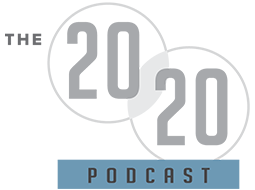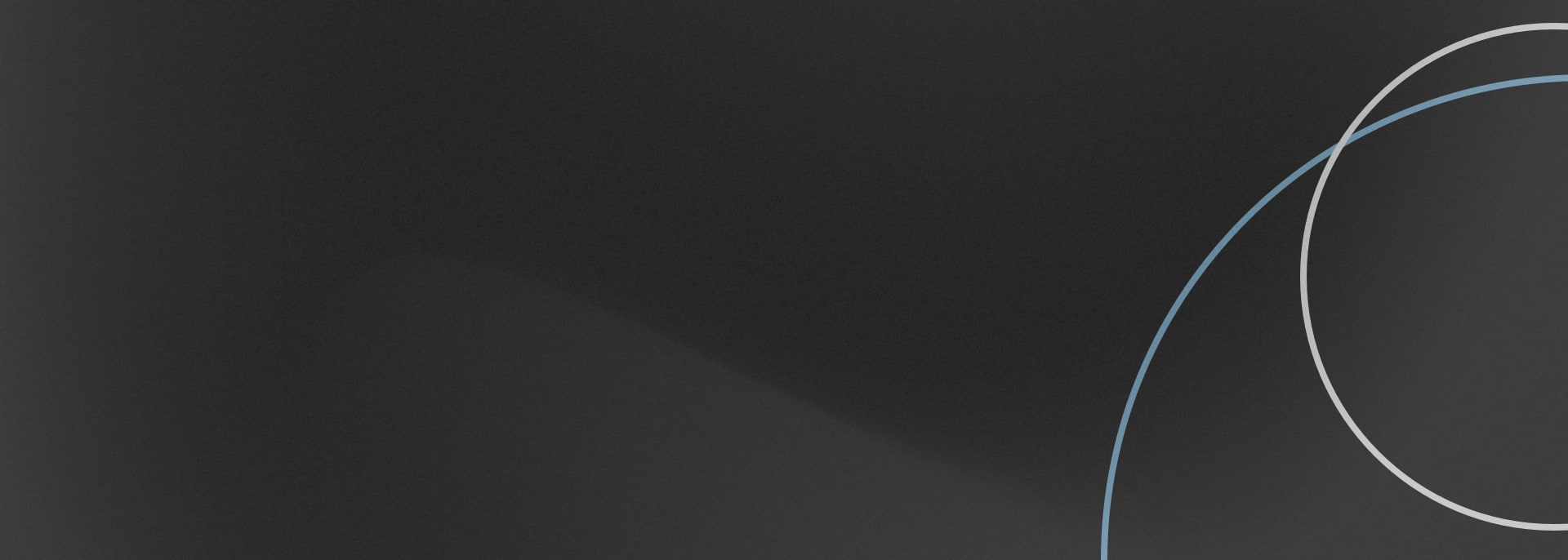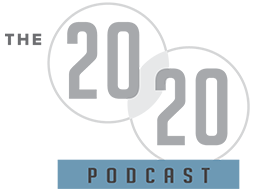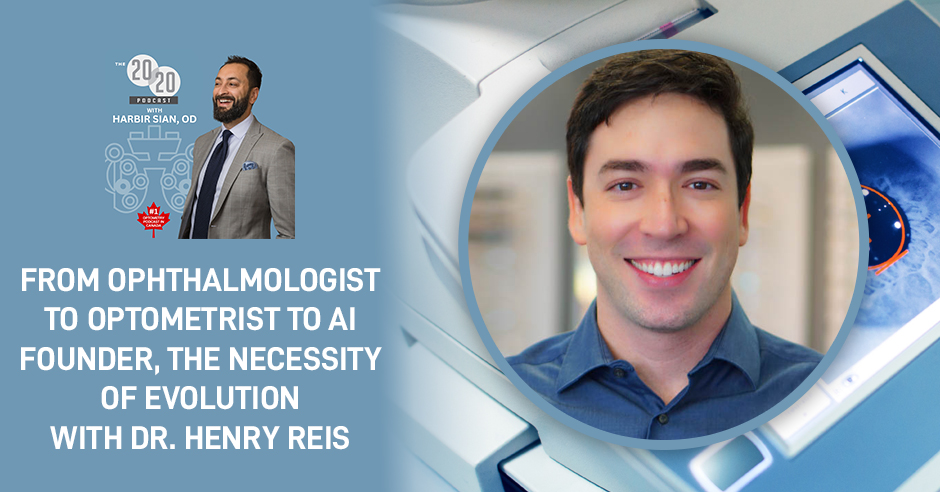
You know those people who seem to master every chapter of their career evolution — effortlessly moving from launching a tech startup to leading a multi-location optometry empire? Dr. Henry Reis is one of them. But don’t be fooled by the accolades — his path was anything but effortless. In this deep-dive interview, we pull back the curtain on Dr. Reis’s remarkable journey, uncovering the power of reinvention, the grit behind a groundbreaking AI startup, and the secrets to building an optometry practice that truly puts patients first. Get ready to be inspired, challenged, and maybe even nudged to step outside your own comfort zone.
—
Watch the episode here
Listen to the episode here
From Ophthalmologist To Optometrist To AI Founder, The Necessity Of Evolution – Dr. Henry Reis
Thank you so much as always, folks, for taking the time to join me to learn and to grow. I’m always so grateful for all the support. As always, I’m going to ask a big favor right off the top and that is, if you get some value from this, please share it. Put a screenshot up on Instagram or send a link to a friend or put a link on Instagram or LinkedIn, or Facebook, wherever you live or wherever you spend your time. Tag us and let our friends and colleagues know that we’re having these conversations.
As always, I’m trying to bring on guests and have conversations that are going to help us all grow and for a profession to grow and to be better and stronger in the future. My man, Dr. Henry Reis, is the perfect person to have these conversations with. Dr. Reis is the owner of Integra Eyecare, which has two locations, an eight-doctor practice in Vancouver and Burnaby. He is a true entrepreneur at heart. He is a founder of a tech startup, which we’re going to talk about AI4Eyes. He’s officially originally trained as an Ophthalmologist in Brazil, and is now practicing as an Optometrist in Canada.
He was named the BCDO Optometrist OD of the Year in 2025 at the BCDO Conference and also previously named RBC’s Top 21 of RBC’s Top 25 Canadian Immigrants of the Year. Those are just a few of the many accolades this man has acquired and achieved in his long illustrious career. Dr. Reis, thank you for being here. I appreciate it.
Thanks for having me on.
I want to say this so we get it out of the way. Dr. Reis is coming a little bit out of his comfort zone here and I want to say a big thank you for doing that, Henry. You are truly an influential, impactful person in our profession and people need to hear your thoughts and your voice. I appreciate you coming out of your shell a little bit to do this for us. This is going to be one of our more read episodes in 2025 because of the amount of value that you’re going to share.
In case you weren’t sure this one is an important one to read or you thought you’re only going to take the first few minutes. You’re going to want to stay tuned for the whole episode. Henry, I know I gave a little bit of a quick preview of who you are. Tell me a little bit more about yourself. How would you introduce yourself to somebody new that you’re just meeting?
I’m Henry. My actual name is Henrik but it’s so hard for people to pronounce, even though there’s Henrik Sedin in BC. I’m from Brazil, trained ophthalmologist in one of the most prestigious universities there. I moved to Canada and Britain to become an optometrist here. I have been practicing since 2013.
What you’ve accomplished in that twelve-year period is incredible. Again, with the level that you practice at. I just took a little tour around. By the way, we’re at Integra Eyecare. We’re at the newer location in Vancouver. It’s a beautiful office. I took a walk through. Henry showed me around the tech that this guy has in the practice and the way he runs it. The culture that he’s developed is incredible.
Those are the things we’re going to talk about. The overarching theme here which we talked about is reinventing yourself and we’re jumping into a pretty heavy topic here. Talking about reinventing yourself and the importance of reinventing yourself as you go through your life and through your career. Tell me about why that’s been important to you.
The Importance Of Reinventing Yourself
I feel like every immigrant has to some degree reinvent themselves. In my case, I come from a country that doesn’t speak English. I had to learn how to speak a new language, how to drive in a new country and bridging onto a career that’s very similar to the one I had back home. There are so many differences that are fundamental to the profession. For example, we didn’t have any connections to optical and sales back home. There’s no optometry in Brazil, so it’s ophthalmology and opticians. There is no optometrist in the middle.
I had to reinvent myself to be able to start over. When it comes to reinventing herself, I feel like most people are afraid of change, in general. I feel like that’s one of those fundamental fears that everyone has when you go from one step in your career to the next. When you go from single to married or changing cities. Everything starts over. In my case, I had to reinvent myself as a way to survive, but it opened up a bunch of doors to opportunities that I would never have otherwise. I would say, once you overcome the fear of reinventing yourself, that’s when good things happen.
Once you overcome the fear of reinventing yourself, that’s when good things happen.
In that sense, as an immigrant and any other immigrant that has gone through that type of experience, you were forced to reinvent yourself. I find that many others, though, don’t have to go through such a huge life shift, but still reinvent themselves as very important. How would you encourage somebody? As you said, there is understandably a lot of fear around reinventing yourself. I can think to myself. I feel pretty good about where I am now. Why would I want to make a big shift? Why would I want to change myself? What would you say to somebody who brings that counterargument to what you were saying?
The biggest concern people have about change is ending up in a worse position. I feel like that’s the thing. No one’s afraid of change. Everyone’s afraid of losing what they have. Once you understand that, then you can shift the mindset into, “I’m losing something in exchange for something potentially greater.” In this industry, if you don’t reinvent yourself on a regular basis, you’re falling behind.
I’ve been here for a little bit over a decade and I’ve seen the introduction of big players in the industry that were not here when I started. I saw the growth of online retail. I’ve seen shifts in AI. I’ve seen shifts in virtual frame fitting and so many other things. If you’re not concerned about those, if you’re not wired and pay attention to those changes. Before you know it, you are obsolete. Change in this case is a way to stay relevant and to stay focused on what you do and more importantly on how to better serve your patients. You have to embrace change.
What’s going to ultimately negatively affect us as professionals, as people and as our profession as a whole is complacency is what’s going to kill it. Kill our growth. We have to make sure that we’re willing to push forward and change over time. I love that you put it that way because as we can see, a world is changing around us. You have reinvented yourself multiple times since you’ve been here. It’s just a simple transition of coming to Canada and having to become a Canadian in many ways.
In your profession, one of the things that you have done is not just to be an optometrist and a business owner, but to be the founder of a startup. I wanted to talk about this. We’ll come back to the optometry side of things and how you run your office and all this stuff. One of the key things I want to talk to you about is entrepreneurship. That’s one of my favorite conversations on the show.
Everyone’s afraid of losing what they have. Once you understand that, you can shift your mindset to realizing you’re giving something up in exchange for something potentially greater.
In fact, when I started the show, it used to be the 20/20 Podcast and the subtitle was Entrepreneurship, Business and something. The entrepreneurship was part of the title because I loved having that conversation so much. I want to hear about your story of starting a tech company and inventing essentially a new product that was based on AI. Tell us a little bit about AI4Eyes. How did it started?
Founding The Tech Startup, AI4Eyes
It started in 2018. A lot of people don’t know that. When they research AI4Eyes, they think it’s a new company. Our whole understanding of AI is probably from a few years ago, when we had opened AIs or ChatGPT. That’s when AI hit the mainstream media. People started talking about it, but in our case, I was giving a talk in Vienna, at the European Society of Refractive Surgeons. It was about a simplified version of those two.
I created a flowchart that helped doctors that are running busy practices to diagnose and treat dry eyes in a more effective way. Part of my talk was complaining about the fact that we tend to not follow certain algorithms. We fall into old habits and if you’re running behind, you won’t measure osmolarity on patients. You won’t measure their symptoms using a speed questionnaire, for example. It’s so easy to be complacent.
Part of the talk was about that. My business partner at the time said, “We should start a company together to create a solution that allows doctors who think that way to deliver a greater standard of care, to elevate the standard of care.” The idea was to create an artificially intelligent power device that helps scan pretty much every single part of the eye that you need to scan. It comes up with a consistent, repeatable, and fast diagnosis for dry eyes. As we know, it’s pretty complex in addition to diagnosing properly.
The idea was bold. At the time, I thought, “That seems daunting because we’re starting a hardware/software company from scratch. Mind you, in 2018, I have been here for seven years. I was still learning how to navigate the industry. I was working as a cue pinion leader for a few companies and I was a new father. My son was one at the time and there was a lot of change in my life. I decided to navigate that and went ahead first. That was probably one of the most difficult parts of my journey in Canada, from starting a company with a new business partner who helped fund the company from 2022 onwards.
From its inception to 2022, I reached out to a variety of leaders in the industry. We raised $1.2 million in revenue. We grew from an idea to an alpha device. The proof of concept was there. The hardware is the best I’ve ever seen. The algorithm works and the system works. It’s now in its last stage of development, where we have a new CEO who is bringing this device to market. That was the whole idea. The whole envisioning a device and selling the idea to people when there was nothing to show was incredibly challenging for me. I feel I’m outside of my comfort zone. This is completely outside of my comfort zone. I don’t mind speaking in public and in front of a live audience. Put a camera on my face and I shut down.
Once again, thank you for being open to it. It is interesting and not judging at all. I know everybody’s psychology is different in these types of capacities, but you are able to speak in front of large audiences very comfortably. I knew once I put the camera on, once we started getting going, it was going to be a lot of value that comes from you to share with everybody. That’s incredible.
I’ve heard a little bit about this type of thing where the founder’s journey is maybe not what we see so much in public. The fact that a lot of your time was spent convincing people to invest and to raise the capital to bring this thing to fruition. Your idea is great and the product is great, but it’s that other stuff that happens behind the scene that’s a lot of work. How far along has that all come now? Where is that company in the state?
The Challenging Reality Of The Founder’s Journey
When I started, I had a very clear view of what I wanted to achieve, what the device would look like and what the output would be. We retained a company called StarFish Medical. They’re one of the leading medical device manufacturers in the world and a world-class team with phenomenal medical engineers. They were able to bring that idea to fruition after we had a seed round. When we got that capital in our hands we were developing the device. It was incredibly challenging to understand what was worth exploring, worth investing in, and how you direct your resources.
In our case being a startup, I worked long weekends pretty much every evening. I held up a bunch of all-nighters and devoted a good portion of my time. Pretty much all of my free time onto this. All the blood, sweat and tears that people talk about. It was interesting every time I spoke to a doctor or a potential investor about the company. They thought, “That must be incredibly glamorous. You’re the CEO of a company.” The reality is I wasn’t a CEO in the essence of the word. I was a founder that was working my butt off to make sure that every dollar that we put in the company was put towards the angle.

All the marketing was done by me. The website was created by me, the logo and everything else. Stuff that we, as entrepreneurs normally do and we take it for granted. People that are seeing that from outside think, “You’re lucky.” I’ve heard that so many times, “Aren’t you lucky that you had this opportunity to start a company?” They don’t realize how much time, money, and effort was split between that and the sacrifices that my family had made, my wife and my son. The countless nights where my son would wake up in the middle of the night and would ask, “Where is daddy?” “Daddy is downstairs in the office working.” It’s 3:00 AM. Now, the company has a working alpha unit.
That’s the next step after having a prototype. Now, you have an actual working product. That’s like the final product, essentially.
With a user interface that works and it looks sleek and beautiful. The device itself had so many iterations. As we were creating it, it’s far from what I had envisioned when we started. It’s like every other right device that’s ever been invented. The whole idea was I wanted to switch from the consumer to the position of a creator. You go to a conference and to the booths. You see what’s available and what’s for sale and you realize, “I need to purchase that device. I want to acquire that line of glasses. I want you to offer those eye drops as a consumer.”
I thought well what a great opportunity to leave that position and create something that resolves all of those pain points that we have right in the real world. That was quite the interesting thing that kept me going. Now that we have the device with an interface that works and a hardware that works, we got to a point where we needed someone who understands SaaS and software. We onboarded a new CEO and she’s phenomenal. She is the one now running the company that’s going to take that device, my brainchild. She’s going to bring it to the market. That’s the last stage. It’s the regulatory system. After a regulatory approval, the go-to-market is pretty straightforward.
That’s incredible. I appreciate you pulling back the curtain a little bit in there and giving us that behind-the-scenes because most people would say it seems like a glamorous thing to be the founder and the CEO. We’ve seen the Bill Gates and the Zuckbergs of the world and that’s what we always envisioned when we hear CEO. The majority, 99.99% of CEOs, even those guys, have to hustle and work in the background until they become those personalities and those idols, so to speak that we see them as.
I appreciate pulling that back and helping everybody understand how much work goes into it. It’s not something that you can just do willy-nilly just to become a founder and CEO of something, especially something so complex as this. Again, as you said bringing multiple worlds together, healthcare and AI, hardware and software. Not a lot of brains can compute all of those things at the same time.
I certainly understand becoming not just the chief executive, but the chief operating, the chief marketing, the chief of logistics, and the chief of who knows what else has to go into it. I look forward to hearing more about this technology as it comes out. Is there somewhere people can go to learn more about this now? Is there an active website or somebody wants to watch out for this as it comes onto the market?
It is available on LinkedIn. It’s a pretty active page now. AIForEyes.com is the website.
The logo is with the number four.
Yes, but the website is AIForEyes.com.
That’s amazing. Again, I love the conversation around entrepreneurship, especially outside of the practice to see somebody like yourself. I see somebody like Claudine Courey with Eye Drop Shop and stuff like that, where somebody’s building something entirely separate, and I don’t want to say that the path is laid out when we open a practice. We know that there’s many other colleagues around us that have done this type of thing as far as starting an optometry clinic and going through the process there.
We’re going to talk about how some practices are different, for example yours. When we go completely outside of these four walls we have to create, as you said, something from scratch. Something that’s never been created before. That’s just magical to hear and wonderful to see it come to fruition. I’m excited to see that. Let’s talk about within these four walls, Integra. Now, we’ve grown into this big booming practice and we’re talking about how you’re born to the practice.
You’re bursting at the seams waiting for a new space to continue to grow that practice. Where did it start? This is a big long question now or a big long answer, I imagine to this question. Where did it start? Can you name two or three things that you think you’ve done well to bring it to this point now to build the team that you have and the number of patients you have?
Building The Multi-Doctor Integra Eyecare Practice
Integra for me is the continuation of the practice I had back in Brazil. Back home, we had an ophthalmology practice inside of a multi-centric hospital. We had one location where I ran the ophthalmology clinic. There were eleven other locations where I would either just practice at another ophthalmology location, but they had ENTs, cardiologists, and so on and so forth. When I moved here, I realized that there was some fragmentation.
You see an ophthalmologist for glaucoma and they don’t practice alongside someone who does cornea. There’s no specialist in the same space. With the exception of the eye care center, all of those practices are of some specialties. I thought, “This is not very efficient for the patient, for the government, and for anyone for that matter.” I believe in collaboration over competition. That was always my number one motto.
I feel like there is more competition and collaboration here and it should shift. It must shift if we are increasing our scope and if we are improving collaboration with ophthalmology. I believe this is something that needs to happen. My idea with Integra is when I bought the Burnaby office, it was running since 2006. That was 2014 when I started and it was a dying practice. We had about 2,000 patients at the time. About a third of them were active files and we were upside down. If you looked at our books, it would call me crazy for buying the practice because it was just not a good idea at all.
That was an opportunity. You already had a location and patients. It didn’t have the technology, the frame lines I wanted and the lenses I believed in. I thought it’s better than starting up cold. I bought the practice and within the first year, we renovated the entire space and made the front desk a lot smaller and the reception smaller. We increased the pretest room and doubled from one exam lane to two even though it was just me practicing at the time. My vision was, “I’ll have more doctors coming in. I want them to be doing something that I’m not comfortable with binocular vision, pediatrics, vision therapy, and what have you.”
I didn’t want it to be Dr. Reis’s office. I wanted to be something where multiple practitioners could work in an integrated way, hence the name. We grew very rapidly because doctors and patients saw what we were trying to achieve. They saw it would come in and it’s a one-stop shop. Ideally, that was the goal. To grow that practice all the way to not having any room for more patients. I’m booking 8 or 9 months ahead, which is insane. Our associates are incredibly busy at the Burnaby office and we need to grow.
The whole idea now is we’re waiting for real estate that is right next door to be developed so we can move to new practice. This office appeared out of thin air. I was thinking we need to build a second location and I saw this development here. We got the real estate and developed into a 3,000 square feet multi-doctor location that has ophthalmology working alongside optometry. One of the challenges is the whole concept of having an optometrist working in an ophthalmology office, which is great, but I wanted to have something where both work at the same level and collaborate at the highest level possible.
I didn’t want to have an ophthalmologist visiting my practice once a month or once a week. I wanted them to have their location here as their primary location and that’s what we did. Now, we have phenomenal doctors that are seeing patients here outside of this room that call Integra home. When they called her patients, it’s not, “I see patients in this location as well as Integra.” This is where they treat their patients. I want you to grow to more sub-specialties.
Now, we have general and glaucoma. If it’s up to me, we’d have retina, Oculoplastic, cornea, and cataracts, and everybody under one roof. I feel like that’s the biggest differentiator of what we have here. I want to have a very strong dry eye practice because I come from a corneal background. I want to have a very strong myopia management practice because I’m a high myopia. My son is myopic as well. Selfishly, it’s a topic that’s very interesting.
There’s good things that come out of being selfish. It’s nice to be altruistic and selfless, but sometimes when you’re doing something for yourself or at least for somebody’s betterment or somebody’s health, other good things come out of it. That’s the service that you provide to myopic patients. There’s interesting things there. The ophthalmology thing is a cool idea. Dr. Rob Schertzer, which some people might know from social media because he does have a little bit of a social media. He’s got his own show, too.
He does.
That’s cool that he’s working within your practice. I want to talk about sculpt modernization as well a little bit because you brought that up in there. Tell me a bit about it if you could distill it. I know it’s hard, especially over a decade of doing this. What are two or three things that you think you’ve done well in there or you’ve done consistently in there that you think has helped to grow your practice?
Keys To Practice Growth: Not Being Complacent & Going Beyond
One of them is to not be complacent. That’s the number one thing. I realized that there’s no going back to Brazil. I’ve burned that bridge and the boats. There’s no going back. Not that I can’t, but I realize, “I’m moving to a new country. I got to make this work.” When I bought the practice and realized that the numbers were looking the way they were. I got to make this work. Not staying complacent was the number one thing.
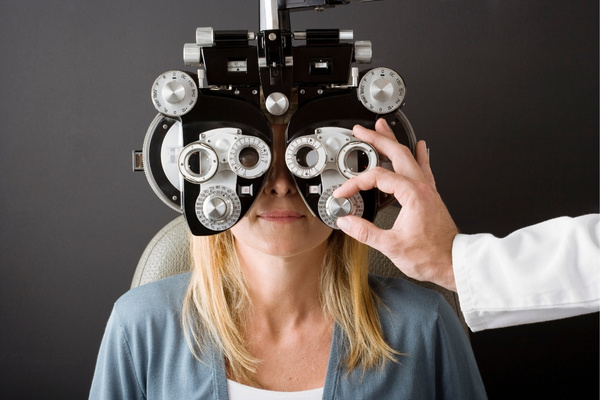
I would come to the office. If I’m not fully booked, I would pick up the phone and I would call GP practices and I would say, “I’m a new doctor in the area. This is my background and this is what I do. Can I come and have a word with you?” I heard probably in 99 nos to one yes, but that one yes would open more doors. If you asked my optician who was with the practice and still is. When I bought the practice, he was already there. He’s been with Integra longer than I have. He remembers.
We would just have one phone for the entire office and one computer for the whole office. It was paper files. I would just be running back and forth trying to get a hold of doctors and make the practice known. If we talk about it these days now with social media and with all the new vehicles that we have to communicate what we do. Google reviews, for example. That’s how long ago it was. I remember discussing that with doctors when I first bought practice. I said, “I believe reviews are going to be the number one drivers to your practices.” People would say, “No, I don’t think so. It’s the website.”
The Value Of Personalized Patient Experiences
I thought that’s the review because it’s organic. It’s coming from patients. It’s sharing that experience. When you want to get a new barber, you’ll ask a buddy, “Who cut your hair?” Nowadays, no one asks a buddy anymore. Everyone goes on Google reviews. That was a big driver. I believe that was one thing, making sure patients get the experience that is not just what they expected but beyond. That’s another one. In all of my talks throughout the years, I always say that I feel like optometry used to be very transactional like a vending machine. If you want to buy a Coke, you put a toonie. You get a Coke and there you go.
That’s $2 for our American readers.
You got your money in there, you get your Coke, and you got exactly what you wanted, then you go on. If you ever feel thirsty and need another Coke. You don’t go to the same vending machine. You go to a vending machine. Optometry as a career would be like, “I’m delivering the center of care that is required.” If you don’t go beyond, then you’re just one vending machine next to another. There’s so many optometry practices.
The number one thing for me is to go way beyond what the patients expect. It could be as easy as having popcorn sometimes for patients. I have a patient who is obsessed with Pearl Jam. The first day I saw the guy, I asked, “Nice T-shirt. I like Pearl Jam, too.” He goes, “That’s a cool band.” I remember that. I cannot put that on the patient’s file, but memorized it. The following year, he comes in and there’s Pearl Jam playing for him in the reception. He goes, “Good tasting music.” Every single time he sets foot in the office now, there is Pearl Jam waiting for him in the exam room. Those things, it’s going beyond.
That is going beyond. I love the first one, the complacency as we said earlier. It’s the killer of dreams, if you will. It was what I was getting to earlier, but going above and beyond is key. When I speak to successful entrepreneurs or business owners, in general, going beyond is a common theme. It reminds me of something my dad used to tell me. My parents have been business owners for a long time. Speaking of the immigrant’s mindset or experience, when we first moved to Canada in the ‘90s, they bought a grocery store and a lot of produce and stuff like that.
They did very well, but a lot of it was when I used to ask my dad as I was growing up, “What was it?” It was on Fraser Street in Vancouver. People would drive in from Surrey and Burnaby, and stuff like that. I was like, “This is weird that you’re driving 30 minutes. There’s other produce shops.” They will come and make a trip to do other stuff. They’ll always come see Dad. They would ask for Rick and I would always ask him, “What is it?” He’s like, “The service. When somebody sets foot, when somebody crosses that threshold, it’s your job to keep them there. You got to do whatever to create that experience.” We’re talking about seven products.
Still, he was doing that back then. I always remember that and it always sticks with me when somebody like yourself says it as well, going above and beyond in so many different ways. Dr. Adam Ramsey, in the States. He talks about that a lot too, whether it’s the aroma of the scent in the clinic or it’s playing music for a patient. Remembering little things. Those are all valuable. At the moment, you might say, “That was just one little data point of a positive experience,” but then you have another one and another one.
If the same person, the same patient has multiple of those data points, all of a sudden, they are yours for life. They are now truly a Dr. Henry Reis or an Integra Eyecare devotee. That’s ultimately what we want to create. Why do certain bands like Pearl Jam or U2 have such rabid fans? It’s not just because their music is good. It’s about the way they make people feel and we have to try to convert patients into like true fans and true believers. That stuff is amazing. That’s cool that you have that.
The Power Of Authentic Care & Connection With Patients
It goes beyond just making that a conscious decision. It has to come from a position that is authentic. For example, my team here. They joke that I have the weirdest memory ever. We have North of 50,000 patients. They walk in the door and I call them by their first name. I ask about their dogs and I remember their dogs’ names. They see it’s authentic. I’m not just putting notes on their file and thinking, “If I do this.” I hear a lot of talks about customer service being so important and building that relationship.
When it comes from acquisition of authenticity, when you care to connect with the patient or when you pick up the phone and call someone and say, “I just started you on a glaucoma medication. I wanted to see if you’re doing okay.” You’re not just doing that out of a place of compliance because you need to check. You’re doing out of a place of caring about the patient. That drives it home because they don’t want to come back because you’re good at dry eyes.
In my case, for example. I have a lot of people coming in because they saw on a forum that we do a lot of advanced dry eye care. They come in for that and then they realize, “Henry is fun to talk to.” I’m always making jokes and keeping it light and they connect before you know. As I said, they are my patience for life because we care about the patient.
Advocating For Optometry Scope Expansion
Optimization, modernization, and advancement of scope. Give me just a few sentences on your thoughts there. Why do you think it’s important?
I think it’s crucial. When I moved here, I was 99% ophthalmologist and 1% optometrist. I had just started my career here as an OD and I still had an issue with the scope being so limited. I wanted to remove skin tags and milia. I wanted to perform chalets of surgery and if possible, do an SLT and that was not allowed. I wanted to prescribe orals to patients and that was not allowed.
Which is shockingly still not allowed.
It’s frustrating and it’s a disservice to the public. I understand there is this whole conversation about controlling the scope because ophthalmologists are concerned about the standard of care changing but that is not the case. Every single time scope has expanded and de-modernized, it’s been good for the public. You look at glaucoma. After we expanded glaucoma, I believe it was 2012. There was a lot of resistance from the medical community about allowing ODs to treat glaucoma and it’s been nothing but amazing the patience and true surgeons, especially glaucoma surgeons. Now they can focus on those cases that demand their care, that need surgery, and need fast therapy.
That’s the minority of cases when you think about it. They don’t have the capacity to serve patients following the proper frequency of care. When it comes to orals, like we were discussing and everything else. I believe there is always going to be resistance and arguments to be made about the training that was not there when they went to optometry school. Now they have to go back and retrain. Whereas if you come from a medical background, that’s already there.
Those are not reasons not to modernize because this is not about optometry having a bigger piece of the pie. It’s about the public having a bigger piece of the healthcare system with better access. That’s just the reality of things. I don’t think it’s something that can be stopped by anyone. Look at legislation and all these changes that need to be made for you to expand scope. They can slow down the movement. They can slow down expansion but they can’t stop it because it’s about the patient. It’s not about us.
A little bit of opposition is a good thing. Don’t get me wrong. It doesn’t make sense for us to just have a landslide or just do whatever we want. Some opposition, regulation, and some making sure that the appropriate things are designated to the professions. For example, major and more invasive surgical procedures are understandable. Ultimately, it’s for the betterment of our communities, our society, and our patients. Allowing certain communities to have access in particular to care that they don’t have access to reducing wait times and saving the government money.
This is the other thing. How much redundancy is there that causes so much additional cost that doesn’t make a lot of sense? Anyways, I wanted to keep that one short just because that wasn’t on our list of questions, but I knew you were the right guy to ask given your background as well and given your integration here with ophthalmology in your own practice. It’s nice to hear from your perspective.
I’ve heard from colleagues in the medical community several times. They will open up. They’ll perceive me as someone that sees both worlds. If I go back to Brazil, I still practice as a surgeon. I can understand, is this a risky move? Is this something that we should be concerned about and afraid of? The reality is, as an ophthalmologist, I would be 100% for scope expansion if I were practicing here as a surgeon. I would be 100% for it. That’s my spiel when I talk to them.
I explained the reasons why. I believe it’s safe and it’s the right move. When I talk to my colleague in optometry, I explain the same reasons because being in both worlds allows me to see that there’s literally nothing to fear. If regulations are there, if you have ways to make sure the training is done properly and the standard of care is net. What’s not to love?
I love that. Funny enough, there are some of our own colleagues that need a bit of convincing as well. It’s helpful when we have a voice like yours to help everybody understand. One thing I want to touch on before we wrap up here. As we touched on here, your practice has continued to grow and you have a lot of ODs that work with you. Some are quite young, new and fresh grads. I met Paula who is a brand new grad. Shout out to Paula who is a rising star here at Integra.
I want to just give a shout-out to our young ODs, our new grads or maybe even students that are reading. What advice do you have from your perspective in a practice like this? For somebody who works with a lot of new grads, what do you suggest or advise you give to somebody in that position usually?
The Single Most Important Advice For New ODs: Don’t Be Passive
The number one and probably the only advice I’d have for now is don’t be passive. Be the one who builds your own reality. That’s the one advice I would have, because if you start a practice, even if you are in corporate. Where they rack it all and package it and give it to you and say, “You practice this way.” There’s still ways within that practice that you can make it your own. They can connect with the patient base. You can go out of your way and create a stronger patient base.
Don’t be passive. Be the one who creates your own reality.
Don’t wait for the practice owner or home office or head office to provide you with the patients or the tools. Think of what you need to thrive and to succeed. Look at your patient base and grow it yourself because ultimately, that’s what’s going to happen. If you are an associate in an independent practice, trust me the owner wants you to be a partner. They might not say it, but they wanted to be a partner. They want you to treat it as your own because at some point, it will be.
If you work for a corporation, they do want that too. The reality is, if you don’t take ownership, if you take a passive seat and just expect things to happen. You don’t grow as a professional. That is the one thing that I see separating the doctors who become superstars and the ones who will stay complacent. That’s the gap. It’s the ones that get stuff done and they don’t wait for things to happen to them.
I was telling you a story about a new associate in one of our offices. She certainly fits that mold of that conscientious, go-getter and asks a lot of questions, which I always encourage. I get a lot of text messages of, “What do you think about this patient? How should I approach this?” I love that. I love taking the initiative to do those things and testing the waters and being comfortable to if you’ve never done it before, to try that or if you’ve never sclera before, let’s try that.
You don’t get the experience unless you do it. Once you get the taste of that, how fulfilling it is to do those things? It helps you as the individual and the practice as a whole as well. I love that advice. Before we go into the last couple of questions, I’m going to ask you. Where can people learn more about you, Dr. Reis or learn more about Integra Eyecare? Where would you like to send them to learn more?
I would say our website is brand new now. It’s IntegraEyecare.com. Our bios are there. We’re trying to make them more than just achievements and education. I like the bios to talk a little bit more about our passions outside of optometry. It’s all there.
I always end the episodes with one or two questions that I have prepped you for and I go back and forth. I want to give a shout out to somebody, Kammy Grewal, one of our readers who reaches out to me from time to time to give me some input on the show. I want to say, Kammy, thanks for the feedback. She said to me that she liked the old questions I used to ask. A little more than the question that I added to the end of the show.
For you, Kammy, on this one, I’m going to go back to the old questions. I got a lot of good feedback on these ones, too. I was trying a new question I have been asking for the last in a while but I’m going to go back and give me the original two questions that I will ask at the end of every episode. I didn’t prep you for them, but I want them just to be natural and authentic and whatever comes to mind.
The first question out of those two is, if we could step in a time machine and go back to a point in your life where you were having a difficult time, struggling with something. You’re welcome to, if you’re open to share what that moment was and what was happening. More importantly, though, I’d like for you to tell me what advice would you give to past Henry at that time?
If I could go back to 2019, my business partner at AI4Eyes is the CEO of a big industry player here in Canada, so I felt small. There was a big power imbalance. I was the one doctor with the one practice in Burnaby that was trying to make the practice work working with this big CEO of a big company. I was given the opportunity to be CEO of a startup but that precluded me from running the show of me saying, “We need to spend money on this and that.” I would defer a lot to that business partner.
Now, I see my associates having the same mindset when they start over. When they start here and they say, “I’m just getting started. I don’t want to give you any feedback on how you run your clinic because you’re Henry and I’m a new grad.” I say, “If I put you in that position, that means that I trust that you’re able to execute on it. I’ll empower you with all the tools to execute and deliver on what I expect you to deliver. I’m not expecting excellence. I’m expecting your full dedication.”
If I could go back to 2019, I would tell past Henry, there is no such thing as a power imbalance. You got this. You don’t have to grow into that position. You’ve been trusted with that responsibility. Get it done and don’t feel small. For you, Kammy and everyone else at home, if you are giving a responsibility that feels too big to chew. Don’t believe that you’re not up to the challenge. Make sure you believe in yourself and you get it done.

I love that advice. That’s a very tangible story and experience. I don’t think many of us are going to be in that same position that you were in where you’re dealing with somebody from that level of experience in their world and trying to feel like you’re at the same level. Even in a practical setting like in the clinic. That’s wonderful. Thank you for that. The second question and the final question. You certainly have achieved a lot of things in your career up until this point but all of these things that you have achieved, all the accolades and business success to this point. How much of this would you say is due to hard work? How much of this is due to luck?
A lot more to do with luck that I like to admit. As far as I know, I am 1 of 2 Portuguese-speaking doctors in BC. There is a retinal specialist who is phenomenal and there’s myself. In Optometry, there is one doctor in Mississauga. That’s it. When I moved here, the community was very small to the point where every time I learned about someone that was speaking Portuguese, we’d become best friends. You’d hear Portuguese on the street, you turn around and go, “You’re from Brazil,” and then you connect and then we had a boom.
If you look at the last five years, the Brazilian Community is in the top ten immigrants in BC. It’s amazing how much it’s grown. That was not planned. I moved here. I started providing services and all of a sudden, I had this tidal wave of Brazilian patients. That helped boost our numbers and helped serve the community. That was a great deal of luck, but I would still say it’s 90% waking up at 4:00 AM and getting stuff done and not going into bed until midnight sometimes and 10% luck. I’d like to say it’s 99% to 1% but it’s 90 to 1.
I appreciate that. It’s always interesting to hear guests work through that one, see the wheels turn because a lot of people are like, “100% hard work,” the initial and then they say, “There’s this and there’s this.” There’s always some amount of luck involved and everybody’s feeling of how much is involved is different. That’s amazing here. Thanks for answering those two questions that I did not prepare for. Thanks, Kammy, for helping me switch gears again on this one. Any final words of wisdom you want to share, Henry, before we wrap up?
I would say don’t forget to like, share, and subscribe. He’s an amazing host and I’m so happy that I finally said yes to be part of the show.
I appreciate that, too. I know I’ve been hounding you for a little while. I appreciate you making the effort and coming on. There’s going to be so much great value in this one episode. Hopefully, you’ll be happy with the results, so we’ll have you back to talk about some more things in the future. Thank you for giving us the space here at Integra. Shout out to Integra Eyecare and the great team here. Be sure to check out the website. In general, if you look for an example as ODs or of somebody who’s doing great work in our industry, who’s building a great practice. Be sure to look at Henry and what he’s built here.
I was going to say, I’m always open to welcoming other doctors to come to the practice to see what we do. Every talk I’ve ever given, I say that and I mean. If you ever want to come by and spend a day here. You’re more than welcome to do so.
Be sure to reach out. Thank you to you, all, for reading and watching the show. Canada’s number one optometry show. I’ll see you guys in the next episode.
Important Links
- Henry Reis on LinkedIn
- Integra Eyecare Centre
- StarFish Medical
- AI4Eyes
- AI4Eyes on LinkedIn
- Eye Drop Shop
bout Dr. Henry Reis
 Dr. Henry Reis is a highly accomplished physician, optometrist, and entrepreneur who seamlessly blends clinical expertise with technological innovation. Originally from Rio de Janeiro, Brazil, where he graduated summa cum laude in Ophthalmology, Dr. Reis developed a deep focus on complex areas like dry eye disease, myopia management, and glaucoma. After moving to Canada in 2013, he quickly became a distinguished figure in Canadian optometry, earning the title of 2025 Optometrist of the Year by the BC Doctors of Optometry. This award recognizes his commitment to collaboration, excellence without ego, and his effort to raise the standard of care across the profession.
Dr. Henry Reis is a highly accomplished physician, optometrist, and entrepreneur who seamlessly blends clinical expertise with technological innovation. Originally from Rio de Janeiro, Brazil, where he graduated summa cum laude in Ophthalmology, Dr. Reis developed a deep focus on complex areas like dry eye disease, myopia management, and glaucoma. After moving to Canada in 2013, he quickly became a distinguished figure in Canadian optometry, earning the title of 2025 Optometrist of the Year by the BC Doctors of Optometry. This award recognizes his commitment to collaboration, excellence without ego, and his effort to raise the standard of care across the profession.
Dr. Reis has been a pioneer in the integration of cutting-edge technology into eye care. He is the founder of AI4Eyes, where he spent seven years developing an innovative AI-powered diagnostic tool for dry eye disease. He is also the creator of a unique dry eye management algorithm, designed to provide consistent, evidence-based care to doctors globally. Furthermore, he was the first in North America to use bipolar radiofrequency for dry eye therapy and introduced the Optimas platform—bringing Lumecca, Forma, and Morpheus treatments—to Western Canada in 2018. His innovations and leadership have led to numerous speaking engagements across North America, South America, and Europe.
As the owner and medical director of the Integra Eyecare Network, which includes clinics in Burnaby and Vancouver, Dr. Reis oversees advanced practices known for their sophisticated diagnostic capabilities and commitment to research integration. His leadership impact extends beyond his clinics: he has served in academic roles, including co-chairing the Cornea Section at the International Society for Eye Research Meeting, and as Associate Editor of the CRO Journal. Recognized as one of the RBC 2020 Top 25 Canadian Immigrants, Dr. Reis remains dedicated to knowledge-sharing, mentorship, and driving systemic improvements in ocular health.
